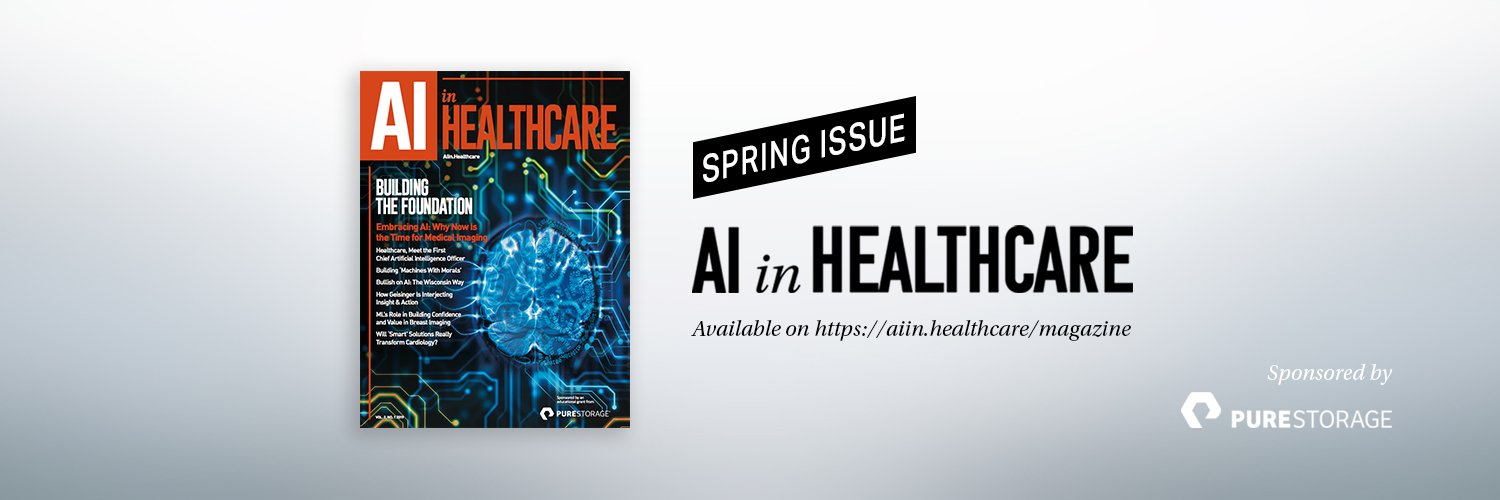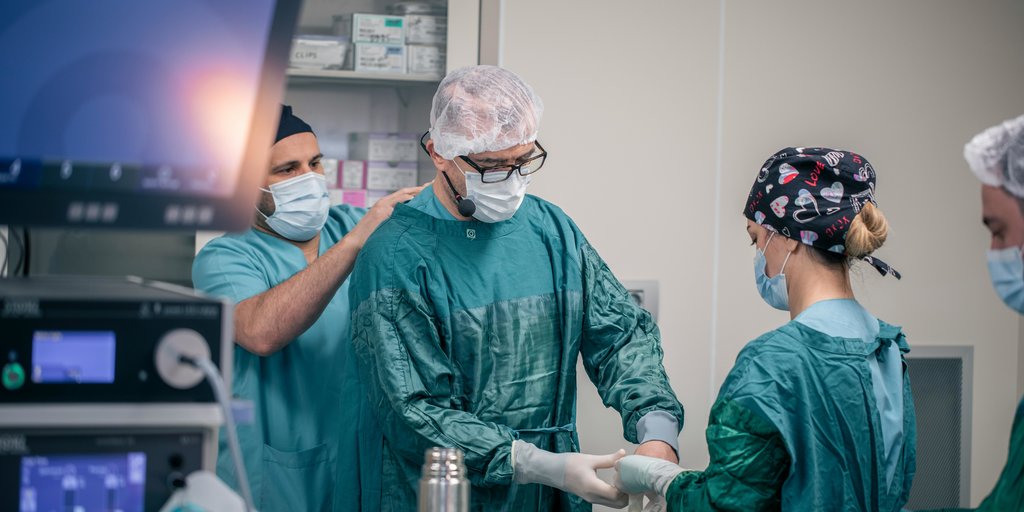
AIinHealthcare
@AIinHealthcare
Innovation to Transform Healthcare. Read the latest issue of AI in Healthcare magazine: https://www.aiin.healthcare/subscribe/ai
A new study considers #AI-aided #cybersecurity for #telehealth #telemedicine. ow.ly/T1nW50WuQN8

Without certain foundational elements, #AI technologies ‘risk becoming another source of #healthcare #inequality rather than a solution to existing #disparities.’ @IJMedIn ow.ly/9zqo50Wtjij

In hospital settings, the success of AI adoption hinges on how well implementation leaders balance technological innovation in departmental silos with operational nimbleness across the enterprise. ow.ly/5vPM50Wry1Q

Experts involved in its development are hopeful their take on explainable #AI can reduce problematic false positive rates common to breast MRI settings. ow.ly/Z5kH50WqTq7

When new #AI tools are implemented effectively using #QI principles, they are more likely to yield big benefits. @KellyCSandberg @DaytonChildrens @WSUBoonshoftSOM ow.ly/P2Lr50WqyC4

AI ups detection of small prostate lesions by nearly 20% ow.ly/b05y50WpSBJ

The updated list contains 146 newly approved #AI devices and, as usual, algorithms tailored to radiology needs led the way. ow.ly/Yg6t50WotfC

Critical care experts: ‘We issue a consensus call to action for the #criticalcare community: The integration of #AI into the #ICU must follow a pragmatic, clinically informed and risk-aware framework.’ @DrMCecconi @AzraBihorac #BMCcriticalCare ow.ly/PIs350WnE0u

Rather than test AI’s ability to detect malignant lesions on imaging, researchers instead explored how #AI affects radiologists' interpretation processes. ow.ly/2f6n50WnbFy

Take a look at the first study to examine the attitudes of #PrimaryCare providers toward the use of #AI decision-making tools in the context of managing multiple #ChronicConditions. @unibirmingham @JMIR_ ow.ly/OxPl50WmyQA

New data suggest increases in CAC scores in between lung cancer screening CTs strongly correlates with the risk of adverse cardiovascular events. ow.ly/PX4850WmtV6

The model spots previously undetected scarring patterns on cardiac MRI scans of patients with hypertrophic cardiomyopathy—a leading cause of sudden cardiac death among young people. ow.ly/9VLK50WlUy3

Have you ever wondered what China and Russia would talk about if they were to discuss AI in healthcare? ow.ly/9UPu50WkI7t

‘Outcomes are worse for #rural patients suffering from an acute #neurological event or #trauma. As such, these conditions pose an opportunity for #AI to improve care for #ruralpatients.’ @VUmedicine ow.ly/ZeAK50WjfSN

If left undiagnosed and untreated for a prolonged period, #fattyliver disease can progress to more serious conditions, such as cirrhosis and liver cancer. ow.ly/oSie50Wj3so

Picture #medschool settings in which #AI-based #simulations train generations of physicians how to navigate technological complexities and #moraldilemmas. @unifg ow.ly/IS1T50WhMnM

AI turns subpar MRI scans into high-quality heart images #cardiology @mumedicine #CVimaging #CMR ow.ly/Jh1k50WhFpx

The scanner requires just 0.7 liters of liquid helium for cooling—a fraction of the more than 1,500 liters standard systems need to operate safely. ow.ly/Bs2s50WhtKP

Common features of breast cancers missed by AI. @radiology_rsna @RSNA @Lunit_AI #radiology ow.ly/P9VU50WgLQZ

Practical experience ‘likely offers a more accurate view of #AI’s strengths and weaknesses,’ which may explain why frequent users show less aversion to its use in medical diagnostics. @catherinetychen @JMIR_ @jmirpub ow.ly/81mM50Wg6Ey
